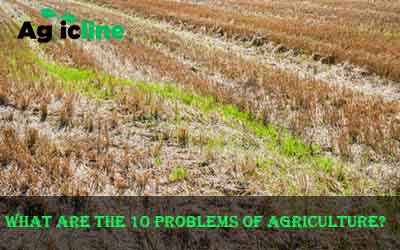Have you been worried about the different money making agriculture business ideas you can pursue? well, never to worry I understand your plight and I created this invaluable piece to help you in your decision making.
Agriculture has always been the backbone of the global economy, serving as the primary source of food, raw materials, and employment for billions of people around the world.
Its significance transcends mere sustenance, impacting national economies, social structures, and the environment.
As the world’s population continues to grow, the demand for agricultural products escalates, presenting both challenges and opportunities for innovation within the sector.
This burgeoning demand, coupled with the pressing need for sustainable practices, has paved the way for a new era of agriculture where technology, innovation, and entrepreneurship converge to redefine what is possible in farming and food production.
The concept of innovative and profitable agriculture business ideas is not just about maximizing yields or expanding farms; it’s about revolutionizing the way we grow, sell, and think about food.
In this context, agripreneurship—where agriculture meets entrepreneurship—emerges as a vibrant field ripe with opportunities for innovative minds looking to make a tangible impact.
What is Agripreneurship?
Agripreneurship represents a dynamic fusion of agriculture and entrepreneurship, marking a significant shift in how we approach food production, distribution, and innovation.
This emerging field is not just about traditional farming; it’s about creating a sustainable ecosystem that encompasses a wide range of activities, from high-tech farming solutions to value-added products that meet the evolving needs of consumers worldwide.
The rise of agripreneurship reflects a broader trend towards sustainability, technological integration, and the pursuit of economic opportunities that also address pressing global challenges such as food security, climate change, and resource conservation.
Impact of Technology and Innovation
Technology and innovation are at the heart of the agripreneurial movement. From precision agriculture that uses drones and IoT (Internet of Things) sensors to optimize farming practices, to blockchain technology ensuring traceability and transparency in the food supply chain, the possibilities are endless.
These technological advancements enable farmers to increase efficiency, reduce waste, and achieve better outcomes, both in terms of crop yield and environmental impact.
Agripreneurship plays a crucial role in addressing some of the world’s most critical challenges: ensuring food security and promoting sustainability.
Traditional vs. Modern Agriculture Business Ideas
The agricultural sector has undergone significant transformation over the years, transitioning from traditional practices to incorporate modern technologies and innovative business models.
This evolution reflects not just a change in how food is produced but also in how agricultural businesses are conceptualized and operated.
Traditional Farming Practices
These practices are deeply rooted in local cultures and ecosystems, emphasizing a close relationship between farmers and their environment.
Traditional agriculture is characterized by:
- Dependence on natural weather patterns and seasons for planting and harvesting cycles.
- Use of heirloom seeds and breeds, preserving biodiversity and cultural heritage.
- Low input farming, with minimal use of synthetic fertilizers and pesticides.
- Mixed cropping and crop rotation to maintain soil health and reduce pests.
- Integration of livestock, providing a natural source of manure for crops and utilizing animals for labor.
Modern Agriculture Business Ideas
Modern agriculture business ideas leverage technology and innovation to address the limitations of traditional farming, improve efficiency, and meet the increasing food demand of the global population.
- Precision agriculture
- Hydroponic and aquaponic systems
- Vertical farming
- Genetically modified organisms (GMOs)
- Agri-tech startups

5 money making agriculture business ideas
- Organic Farming
- Aquaculture and Fish Farming
- Hydroponic Farming
- Livestock Farming
- Agro-Tourism
- Agri-Tech Startups
Organic Farming
Organic farming has surged in popularity due to the growing consumer demand for healthy, chemical-free produce.
This method focuses on using natural fertilizers, such as compost and manure, and biological pest control to maintain soil health and reduce environmental impact.
Starting an organic farm requires a commitment to sustainable practices, adherence to certification standards, and a strategic marketing plan to reach health-conscious consumers.
The higher price point of organic products can lead to significant profit margins for diligent farmers.
Aquaculture and Fish Farming
With the world’s increasing protein needs and the overfishing of wild populations, aquaculture, or fish farming, presents a lucrative opportunity.
This involves breeding, raising, and harvesting fish, shellfish, and aquatic plants, primarily for food. Entrepreneurs can specialize in a variety of species, focusing on those with high market demand and value, such as salmon, shrimp, or tilapia.
Success in aquaculture requires knowledge of sustainable farming practices, water management, and disease control to ensure a healthy and productive operation.
Hydroponic Farming
Hydroponic farming, a method of growing plants without soil, using mineral nutrient solutions in a water solvent, allows for year-round production under controlled conditions.
This innovative approach to agriculture is highly efficient, conserves water, and can significantly increase yield per square foot compared to traditional farming.
Hydroponic farms can be established in urban settings, reducing transportation costs and providing fresh produce to local markets.
The initial investment in equipment and technology may be high, but the potential for profitability is substantial due to the growing demand for locally grown, fresh produce.
Livestock Farming
Livestock farming encompasses a range of activities involving the breeding, raising, and marketing of animals such as cattle, poultry, goats, and sheep.
This sector offers diverse opportunities, from dairy farming and egg production to meat and wool.
Success in livestock farming requires effective management practices, understanding of animal health and nutrition, and compliance with regulatory standards.
With the global demand for protein rising, focused and efficient livestock operations can achieve significant profits.
Agro-Tourism
Agro-tourism combines agriculture and tourism, offering visitors a chance to experience farming life, participate in agricultural activities, and learn about food production.
This business idea can be a lucrative way to diversify income for farms, providing services such as farm stays, educational tours, and direct sales of farm products.
Agro-tourism not only generates revenue but also promotes sustainable agriculture and connects consumers with the source of their food.
Agri-Tech Startups
The digital revolution has not spared the agriculture sector, with numerous opportunities for agri-tech startups to innovate and solve challenges faced by farmers.
From developing precision agriculture tools, farm management software, and supply chain solutions to creating platforms for direct farmer-consumer connections, the potential for technology-driven solutions in agriculture is vast.
Entrepreneurs with a tech background can leverage their skills to create value-added services that improve efficiency, productivity, and sustainability in farming.
Steps to Launch Your Agriculture Business
- Conduct Market Research
- Identify Your Niche
- Develop a Business Plan
- Secure Funding
- Obtain Necessary Licenses and Permits
- Choose Your Location Wisely
- Implement Sustainable Practices
- Market Your Products
- Monitor and Adapt
Conduct Market Research
The first step in launching any business is to conduct thorough market research. Understand the local demand for agricultural products, identify your potential customers, and analyze your competitors.
This research will help you determine which agriculture business idea is most viable in your region and how you can differentiate your products or services in the market.
Identify Your Niche
Based on your market research, choose a specific niche within the agriculture sector that aligns with market demands, your interests, and your resources.
Whether it’s organic farming, aquaculture, hydroponic farming, or agri-tech solutions, selecting a niche will help you focus your efforts and resources more effectively.
Develop a Business Plan
A comprehensive business plan is crucial for the success of your agriculture business.
This plan should outline your business goals, strategies for achieving these goals, a marketing plan, an operational plan, and financial projections.
Your business plan will serve as a roadmap for your business and can be essential in securing funding or investments.
Secure Funding
Agriculture businesses often require significant initial investment for land, equipment, seeds, livestock, and technology.
Explore various funding options such as loans, grants, investor funding, or crowdfunding.
Present your business plan to potential investors or lenders to demonstrate the viability and potential profitability of your venture.
Obtain Necessary Licenses and Permits
Before you can start operating, you’ll need to obtain the necessary licenses and permits.
These may vary depending on your location and the type of agriculture business you’re starting.
Common requirements include business licenses, land use permits, water use permits, and health and safety certifications.
Choose Your Location Wisely
The location of your agriculture business will significantly impact its success. Consider factors such as soil quality, climate, water availability, and proximity to your target market.
For urban agriculture ventures like hydroponic farms, access to urban markets and space utilization are key considerations.
Implement Sustainable Practices
Incorporating sustainable practices into your agriculture business not only benefits the environment but can also enhance your brand’s appeal to consumers and reduce operating costs over time.
Consider practices such as water conservation, organic farming, renewable energy sources, and waste reduction.
Market Your Products
Developing an effective marketing strategy is essential to attract customers and build your brand.
Utilize digital marketing, social media, local farmers’ markets, and community events to promote your products.
Establishing direct relationships with consumers and businesses (such as restaurants and grocery stores) can also help you secure a steady market for your produce.
Monitor and Adapt
Once your business is up and running, continuously monitor its performance against your goals.
Be prepared to adapt your strategies based on market trends, customer feedback, and operational challenges.
Staying flexible and responsive to the market will help you grow and sustain your business over time.
Challenges in Agricultural Entrepreneurship
By understanding these obstacles and implementing strategic solutions, entrepreneurs can navigate the complexities of the agriculture sector successfully.
- Access to Capital
- Climate Change and Environmental Factors
- Supply Chain and Logistics
- Regulatory Hurdles
- Technology Adoption
Solutions in Agricultural Entrepreneurship
- Leverage Alternative Financing
Explore crowdfunding, angel investors, government grants, and agricultural-specific loans that are more sympathetic to the unique challenges of the sector.
Participating in agripreneurship competitions can also provide funding and exposure.
- Implement Climate-Resilient Farming Practices
Adopt sustainable and resilient farming practices such as crop diversification, water-saving irrigation techniques, and soil conservation methods to mitigate the effects of climate change.
- Optimize Supply Chain and Logistics
Utilize technology to streamline supply chain operations, such as blockchain for traceability or platforms that connect producers directly with consumers and retailers, reducing intermediaries and costs.
- Stay Informed and Compliant
Keep abreast of regulatory changes and seek assistance from agricultural extension services or professional consultants to ensure compliance and take advantage of government programs designed to support farmers.
- Embrace Technology and Innovation
Seek partnerships with agri-tech companies or participate in accelerator programs to access new technologies.
Small-scale implementations and pilot projects can demonstrate value before full-scale investment.

My final thought on money making agriculture business ideas
While agricultural entrepreneurship is fraught with challenges, it also holds immense potential for innovation, sustainability, and economic growth.
By addressing these challenges head-on with creative solutions, entrepreneurs can build resilient and successful businesses that contribute to a more sustainable and food-secure future.
The journey through the multifaceted world of agricultural entrepreneurship reveals a landscape ripe with opportunities for innovation, sustainability, and economic growth.
The challenges faced by agripreneurs, while significant, are not insurmountable and, in fact, serve as catalysts for innovation and transformation.
The future of agricultural entrepreneurship is bright, with endless possibilities for those willing to venture into this essential and dynamic sector.
Recommendations
Best Water management technology in agriculture
7 Best Methods of pest control in agriculture
Best precision agriculture technologies



